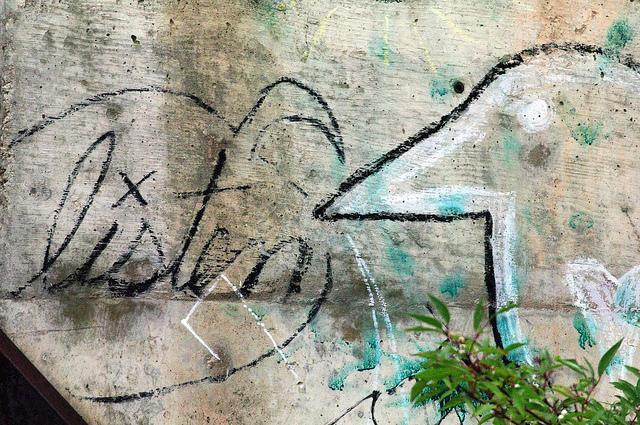Lately, a lot of people have been in the news for sharing their stories about alleged past trauma.
Janice Dickinson, Shia LeBeouf, Lady Gaga and a University of Virginia co-ed known only as “Jackie,” the subject of a much talked about Rolling Stone article, have all been in the news claiming they were victims of rape.
While the accusations have not been without their respective controversies, the trend of people coming forward and sharing their stories has been a welcomed one for me and for many other survivors of past trauma.
Speaking as someone who is not famous and has no desire to be, the sharing of such stories, especially by many high-profile people, has made it easier for me to share my own experiences both as sexual assault survivor and a survivor of domestic violence.
One of the many frustrations that I and other survivors frequently experience is the question by several well meaning people: “Why didn’t you ever tell anyone or report it at the time?”
In all fairness, it is a legitimate question—especially if one has been fortunate enough never to have been in such a situation.
Although I don’t profess to speak for everyone, based on my own experiences and those of others I know who have been in the same boat, a lot of it comes from a sense of shame.
Often times, we aren’t even consciously aware of that shame.
As someone who came of age in the mid to late 1990s, I was always told via public service announcements and after-school specials that “It’s not your fault.”
However, the reality was quite different.
As I recently shared, when I decided to finally tell my mother that I had been the victim of a sexual assault at the hands of an extended family member a year after it happened, her response was as far from anything I could have possibly expected.
Indeed, one of the first things I can recall her saying is, “Keep quiet about this.”
For years, I did just that.
Anytime I confided in someone, I always prefaced it by saying, “You have to promise you won’t tell anyone.”
It was a similar situation, years later, I was physically assaulted in my college dormitory. (Only this time, it was some members of the administration and not my mother telling me to keep quiet.)
I didn’t acknowledge it at the time, but even though I rationally knew that I had done nothing to invite this, much less anything to “deserve” it, there was still a feeling a shame that this had happened to me.
Like many, I always thought I knew how I would feel and act in such a situation—until it actually happened to me.
Add to this that I didn’t know anyone else my age who had a similar experience, and I truly felt alone.
Learning that we are not alone can be powerful.
For example, reading the Rolling Stone article and learning how the administration supposedly tried to cover that alleged rape and others like it compelled me to contact the provost of my alma matar and share what happened to me as well as my frustrations as to how it was handled. (Luckily, I had kept the letter from the then-judicial counsel who looked into the matter and informed me that they weren’t going to do anything.)
As a result, I was contacted by the newly-hired Title IX coordinator who set up a time for me to call and share my story.
I did, and it was incredibly healing. Not only did the coordinator listen to me and apologize for what I went through, but I finally felt that I was being heard after nearly a decade and a half. Even if she had not apologized, it still would have been enough that I was being listened to and encouraged to tell my side.
It wasn’t about settling old scores, it wasn’t even trying to get any sense of compensation in any sense of the word: rather, I just wanted my story to be told, and more importantly, heard.
Likewise, I can also understand why some of the people who have recently been making news are sharing their stories, even in cases where many decades have passed since the alleged incidents took place.
Critics and cynics—especially those making comments online and on social media—who are saying that this is all about publicity and/or attempts for public sympathy fail to see the irony: their own comments show just how difficult it is for many to be believed, and how in many cases, there just isn’t a lot of sympathy present.
Add to this to the low rate at which that these types of crimes are ever reported to the authorities, much less lead to convictions, and I tend to believe that the majority of people who make these allegations public are doing so out of a sincere desire to be heard, and possibly help others who have been in the same situation.
While false sexual assault allegations and false charges of domestic abuse do exist, I generally tend to believe the majority of people who make them, because there really is no glory to be found in making such allegations. Even having the truth on one’s side does not guarantee that one will be believed.
However, there is something undeniably liberating and powerful in telling our stories, even if some chose not to believe them.
At the very least, telling our stories on our terms can help us regain some of the control we did not have in those situations.
Also, it’s important not to underestimate the affect our stories can have on others.
As someone who was silent for too many years, I certainly can attest to this truth.
Love elephant and want to go steady?
Sign up for our (curated) daily and weekly newsletters!
Author: Kimberly Lo
Editor: Emily Bartran
Photo: Kurt Bauschardt/Flickr







Read 0 comments and reply